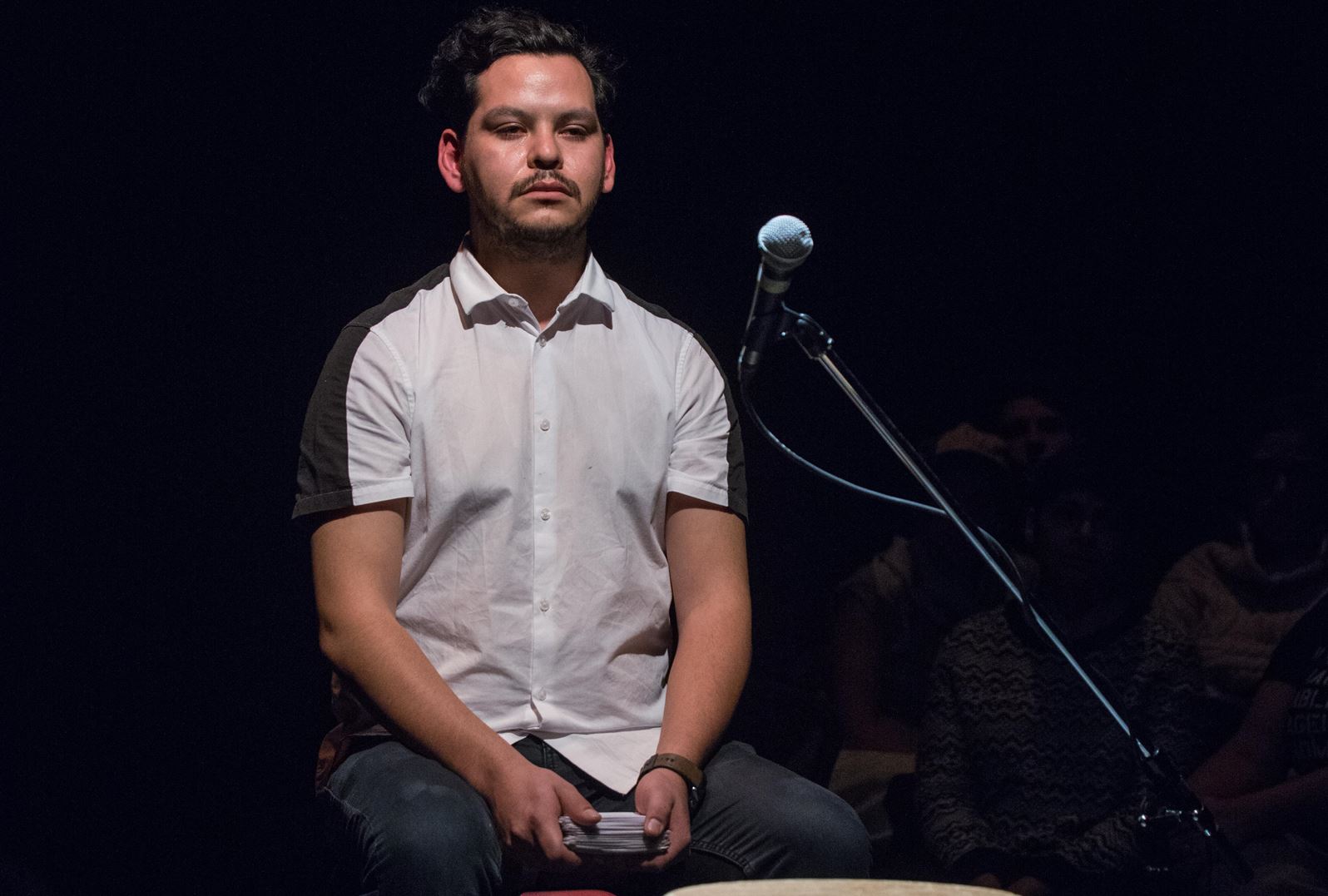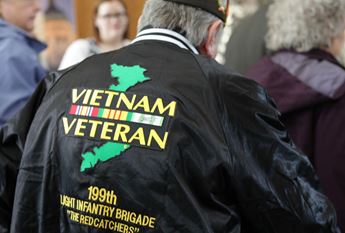

Meet Armando Minjarez
Armando, what’s your Kansas story?
I was born and raised in Hidalgo del Parral, Chihuahua, a small colonial city in rural northern Mexico. At age 15, I moved to Ulysses in southwestern Kansas, to reunite with my nuclear family. Now, 16 years later, I have officially lived in Kansas longer than my place of birth. The question of belonging is not one I can answer easily, as it brings into play the trans-generational impact of colonialism, capitalism and globalization.
My Kansas story has been defined by the lived experienced of migration from the very beginning. Kansas came into my consciousness at age 10 when my older brother moved from Chihuahua to Ulysses. Then, by age 12, I visited, for the first time, this faraway place that I had only seen on a TV screen watching the Wizard of Oz or in the constructed fragments of my own imagination. After my permanent move to Kansas in 2001, the second half of my life started to unfold and it has presented me with some of the most challenging and rewarding experiences thus far.
In this journey, I have reconciled the fact that my identity is in a constant state of flux, giving in and pushing against the forces of an ever-changing environment. Indeed the ability to adapt to an ever changing environment is a characteristic that shapes the Kansas identity. From the times when firstnations people roamed the plains for sustenance during warm months, to the European settlers who made the plains a permanent home during the westward expansion, to the Kansans of the new millennium, who continue to push against archaic and oppressive ideologies, while protecting a shared legacy of resilience and self-determination.
Ni de aqui ni de alla, roughly translated into English as “from neither here nor there", is an expression long used in Mexico to exemplify a type of personal internal upheaval against belonging and displacement, a type of identity crisis that simultaneously accepts and rejects one’s connection to any one particular place and culture. At this moment, I boldly say that I am “de aqui y de alla”, from here and from there.
Describe what you do now. What inspires you about what you do?
My current work is expressed through my role as an artist, community organizer and designer within communities of color in urban Wichita.
My role as an artist with a commitment to the advancement of social justice, has opened up many opportunities to imagine and develop an artistic practice that challenges dominant narratives and systems of power.
For the last five years, I have shaped my work to develop the skills and capacity of artists to foster lasting social change in their community. I facilitate workshops and retreats for artists, activists and community organizers; I develop strategies to highlight the work and narratives of POC, queer, undocumented, immigrant and women artists; I mentor students, budding artists and emerging community leaders as they develop their own initiatives, and lastly, I continue to design and produce studio-based artwork as a process for introspection and healing.
What inspires me the most about what I do, is to witness the power of creative transformation, whether it be an individual or a community. Transformation often is small and gradual, but the impact of those small transformative moments can inspire other actions that lead to change beyond any expectations. Artists are truth tellers, exploring and translating the human condition. We have the ability to define or redefine our legacy as a people, a huge responsibility and a priceless opportunity to transform our collective future.
What inspires you about Kansas?
Having grown up surrounded by the Sierra Madre Mountains, the plains were not the most welcoming sight when I first arrived. But as I continued to grow and explore the high plains in Western Kansas, and the rolling hills of the eastern edge, I began to understand the poetic propositions in this vast prairie.
"I have listened to the soothing waves of oceans made of wheat; I’ve gotten lost in time gazing at the bold starkness of winter fields."
I’ve seen the clouds dance with the sun, spreading their magic across the horizon; I’ve felt to my core the force of an angry sky falling from above, but then given in to its tender invitation to explore an infinite universe in the crisp, clear, night sky. The Kansas landscape is unequivocally hysterical, but always offering an opportunity for ongoing meditation on humility, a daily exercise on self-reflection.
What’s more, as I’ve explored the historic landscape of Kansas, I’ve been greatly inspired by the great legacy of individuals who have resisted oppressive forces and fought to uphold the fundamental principles of human liberation. It is because of this legacy of creative resistance that I’ve continue to engage in social justice work in Kansas.
Why do you love the humanities?
The humanities create meaning and instigate curiosity. Throughout history, the arts and humanities have always been at the vanguard of any progressive social change, translating the human experience as it evolves, and creating arenas for work that challenges the status quo.
Do you believe ideas can change the world? How? Why?
The planet is ever-changing, impartial to those living in it. A precarious position for humanity, one could argue, as passive and powerless dwellers in a seemingly chaotic environment.
"While there is truth is this statement, humanity is far from being a passive or powerless dweller."
Perhaps one of the most recent and impactful indicators of our ability to impact and change our environment and those living in it, is the rapid deterioration of the natural environment, primarily as a direct result of human exploitation. The rapid depletion of natural resources can be traced back to a not so distant moment is history: the dawn of the industrial revolution. This momentous episode in our collective history, was indeed catalyzed by big ideas to redefine what it means to be a modern human, and it continues to have huge implications in our lives to this date.
Ideas can inspire, lead people into action and catalyze change. But this cannot happen in a vacuum, ideas come from people, actions come from people.
We all swim in the oceans of history; we play in waters that have touched every shore, we get drenched with the brilliance of ancient cults and imagine new horizons as we sail in journeys into the unknown. Every waking moment in our collective journey, we have a renewed opportunity to imagine a different today, to shape a better tomorrow. Bold ideas can help shape a vision for a better, more equitable global society. But our actions, both big and small, will define the path we will have to follow. The question remains, where will it lead us?
Why is it important that people engage with new ideas?
Within the framework of social change, the relative newness of an idea, as well as its proposed outcomes, are contingent upon the historic and sociopolitical context of the place from which said idea originates or for which it was designed to serve. Starting from this premise, an idea that might seem passé for one place, might be revolutionary for another. An idea that could uplift someone, could simultaneously subjugate someone else. This logic illustrates how new ideas can be, at any given time and place, paradoxically fluid and stagnant, liberating and oppressive.
If this is true, then it is fair to assume that open, critical, dialogue is essential in the process of implementing new ideas, and should always be intentional in including diverse and historically underrepresented perspectives.
Why should people join our movement of ideas?
Given the magnitude and variety of challenges we are facing and will continue to face, it is of outmost importance for Kansans to actively engage in critical dialogue that leads to new propositions for coexistence. New ideas do not equal good ideas; however, no new ideas equal stagnation and potential demise.
If there is a lesson that I've learned through my decade-long journey with social change work, it’s that if we wait for someone to create the change we want and need, it is never going to happen. It is in everyone’s self-interest to embrace and catalyze change.
Why do stories and fresh thinking matter in Kansas today?
Kansas is facing a magnitude of challenges, many of which are inherently connected to oppressive systems of power, prejudice and isolation. While one of the major challenges about living in Kansas is isolation from more progressive governance models and values, the perceived physical separation between people and communities has considerably shrunk, partly due to the development of new technologies and the ubiquity of internet services. This relatively new system for communicating and socializing with people within a city or across the globe, has facilitated the creation of vast networks for sharing new and old ideas, fostering critical dialogue and even creating supportive communities for like-minded individuals.
What this means for Kansans, is that we, as a mostly rural community, are no longer cut off from the social and political vanguard in an ever-changing world; the internet alone has presented us with unprecedented means for human connection and free flow of ideas.
This drastic change within rural communities historically defined by isolation, cannot happen without friction or challenges to the status quo. Change creates movement, and movement creates friction. Because of this inevitable friction, the sharing of personal story becomes an essential strategy to foster empathy and compassion among people from different walks of life and belief systems. Fresh thinking and bold ideas designed to create new propositions for living and working together, whether shared online or at the local donut shop, need fertile soil to germinate, grow and transform our society with lasting and equitable social change.
How would you like to see Kansas evolve in the next five years?
From my perspective as a POC, queer, immigrant living in Kansas, it’s really hard to predict how Kansas will evolve given the contentious sociopolitical landscape throughout the country. This is particularly challenging when many of the regressive, bigoted or even hostile political actions happening at the national level are being created and tested in this very state. What I would like to see is an evolution in how we fundamentally recognize and value the humanity of all people.
"I want our differences as people to be celebrated and to step away from the colonial expectations for assimilation."
I want to see a drastic change in public school curriculum that acknowledges and celebrates the histories of first-nations and native people before European colonization. I want our schools to celebrate our legacy as a free state, and elevate the stories of free African American pioneers.
I want to see a collaboration between farmers, environmental organizations and our state government to create an action plan for the protection and preservation of the Ogallala Aquifer and investment in new technologies that reduce our dependency in water and fossil fuels, and create a model for sustainable farming practices.
I want to see the legalization of marijuana and commercial hemp, and create new economic opportunities for entrepreneurs. I want to reduce the number of people currently incarcerated in Kansas prisons due to non-violent offenses, with an emphasis in people of color, specifically African American and Latino people. I want those same people to have opportunities to incorporate into the fabric of our communities, and thrive socially and economically.
I want the state to end all contracts with Immigration Customs Enforcement to detain and incarcerate undocumented immigrants in the state of Kansas. I want local and state government to protect and celebrate immigrants and their innumerable contributions to our communities. I want all women to have full access to reproductive and health care services and safe access to abortions. I want elected officials who are men in Kansas to stop making policy decisions that belong only to women.
I want our legislature to establish full protections under the law for my queer, transgender, non-binary, non-conforming brothers and sisters across Kansas. I want universal health care for all Kansas regardless of employment, income, age, gender immigration status or preexisting conditions.
I want all of this and much more. I have big expectations for and from my fellow Kansans, because when we are in the struggle for liberation from all the forces the oppress us, I can’t expect nothing less.
What do you wish people knew or understood about Kansas?
I wish people knew that Kansas has a long history and legacy of freedom fighters.
Are you ready for our lighning round questions? You decide to have dessert tonight. Is it pie or cake? Details, please.
Cake, because it brings back many childhood memories when my mom would bake and decorate intricate cakes to sell or for our birthdays.
Would you ever agree to be on a tv or radio game show? If so, which one and why.
The Price is Right! Because I shop at my corner grocery store almost every day and I would nail the prices every time!
Name your favorite book, film, or artwork and why.
Current book obsession is Octavia Butler’s The Parable of the Sower and The Parable of the Talents, two books of a science fiction trilogy she didn’t finished before her sudden death. Her books are full of characters that actually look and have similar identities to that of my own. I feel connected to the story and the characters in a way that I haven’t with books written in English. She has an incredible (and terrifying) ability to paint a world so close and accurate to that of our times, her work at times feels prophetic.
About Armando Minjarez
Armando Minjarez is a Mexican interdisciplinary artist, designer and community organizer. His practice is guided by themes of displacement, collaboration and empowerment to open spaces for the development of social change strategy and creative expression. He has conducted research, facilitated workshops and trainings on racism, displacement, migration and creative expression in Canada, USA, Mexico, and throughout Europe.



